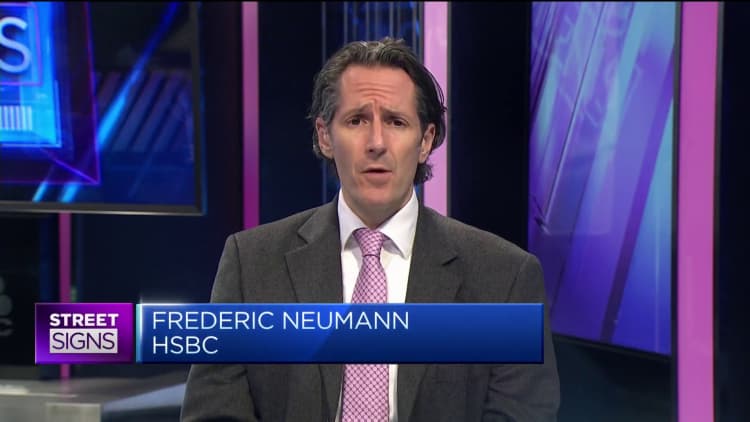Asia-Pacific markets climbed Friday, led by Hong Kong, as Wall Street continued to rally after the U.S. Federal Reserve held rates and laid out a roadmap for cuts in 2024 and beyond.
China released November data for its industrial output growth, retail sales, house prices and urban investment. Most notably, it posted its biggest industrial output expansion since February 2022 in November, though retail sales growth underwhelmed expectations.
Hong Kong's Hang Seng index led gains in Asia and closed 2.38% higher, while the CSI 300 index reversed earlier gains to fall 0.31%, ending at a fresh 4-year low of 3,341.55.
In Australia, the S&P/ASX 200 rose 0.88% to close at 7,442.7, notching its sixth straight day of gains to reach a new four-month high.
Japan's Nikkei 225 also rebounded from Thursday's losses, up 0.87% and ending at 32,970.55 , while the Topix was 0.47% higher and finished at 2,332.28.
South Korea's Kospi advanced 0.76% to 2,563.56, but the small-cap Kosdaq fell 0.27% to close at 838.31. The Kospi is at its highest level in almost three months.
Overnight in the U.S., the Dow Jones Industrial Average extended its record breaking rally to hit new record highs, gaining 0.43%.
Other major indexes also continued their advance, with the S&P 500 adding 0.26% and the Nasdaq Composite up 0.19%.
The 10-year Treasury note yield dropped below 4% for the first time since August as traders bet on rate cuts for 2024 mount.
— CNBC's Brian Evans and Hakyung Kim contributed to this report.




